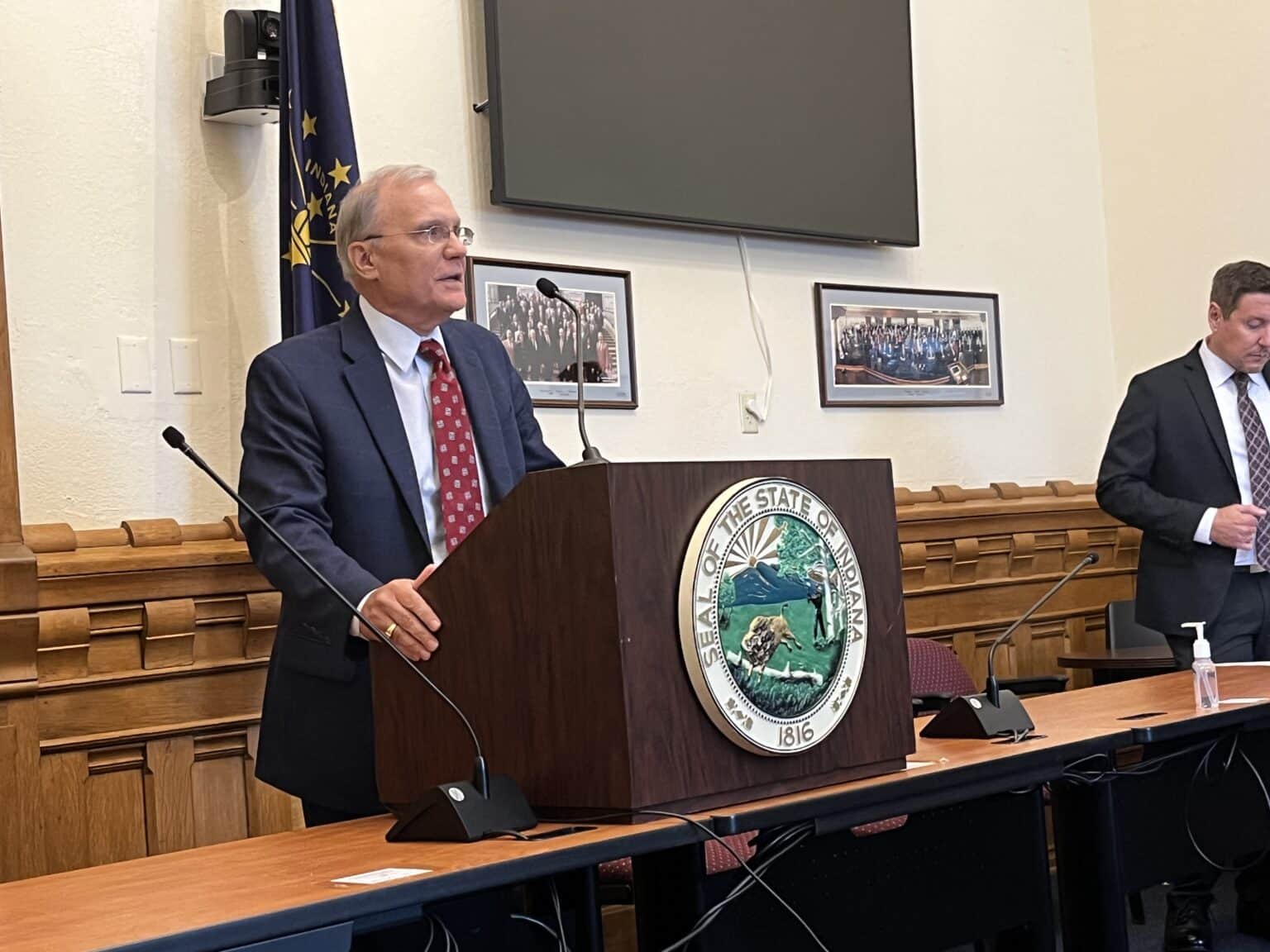
By Whitney Downard
Indiana Capital Chronicle
July 15, 2022
State Auditor Tera Klutz announced Friday Indiana will end its fiscal year with a staggering $6 billion surplus after collecting $1.24 billion more than forecasted in the last year.
“Indiana’s historic $6.1 billion reserve balance gives legislators the flexibility to look at the statewide funding model as well as provide Indiana residents with assurances that Indiana can continue to provide essential services as our country confronts an uncertain economic future,” Klutz said.
Income tax and corporate income tax accounted for the largest increases to Indiana’s surplus, 14.6% each, increasing the 2022 General Fund by 9.2% compared to 2021. Fiscal years run from July 1 to June 30.
Delayed tax collections in 2020 during the pandemic inflated revenues for 2021, meaning that the 2022 General Fund would be up even higher, 14%,when compared to a typical year.
“I too am very pleased to report that Indiana’s fiscal strength has been sustained through fiscal year ‘22 as we come out of the pandemic,” said Cris Johnston (above), the director of the Indiana Office and Management Budget.
The estimated balances for the Fiscal Year 2023 reserves are $5.1 billion, and would drop under Gov. Eric Holcomb’s proposal to send $1 billion back to taxpayers.
Holcomb, noting the forecasted surge in funds of $1.24 billion, called for the General Assembly to convene in early July and enact his proposal. The refund would mimic the automatic taxpayer refund from earlier this year, which distributed $125 each to Hoosiers.
The $1 billion payout would distribute an additional $225 each to Hoosiers.
The calculation for reserves in 2023 includes $2.5 billion paid out to stabilize the pre-1996 teacher pension fund as well as an additional $338 million less in revenue from tax cuts enacted in the 2022 session.
In 2022, lawmakers decided to repeal the state’s utility tax and cut the income tax from 3.23% to 2.9% over the course of seven years, so long as revenue growth remained strong, starting in 2023.
In 2021, while crafting the two-year budget, legislators created a one-time mechanism for excess funds to revert to the teacher pension fund, capping the amount at $2.5 billion. That transfer, though in code, must be approved by the State Budget Committee in their August meeting.
In regards to the $5.1 billion estimated reserves for 2023, Johnston noted that without the governor’s $1 billion proposal that amount would likely trigger another round of refunds because it makes up 25% or more of the year’s expenditures.
“That’s why the governor is very comfortable with proposing the accelerating of a billion dollar automatic taxpayer refund for the General Assembly to consider this session,” Johnston said. “If we still have that $4 billion balance, there are opportunities… to do some cost overrun planning.”
Johnston also said that the governor’s office did consider whether to pay down bonds with Indiana’s surplus rather than keep $6 billion in reserves but that the Indiana Finance Authority had already paid down the bonds that it made “economic sense to do.”
Lawmakers could also choose to authorize one-time spending during the special session this month, scheduled to begin July 25, Republicans have also said they will increase maternal and child supports in that session alongside any abortion restrictions.
Senate Republican leader Rodric Bray, R-Martinsville, alluded to other possibilities for inflation relief in his statement Friday.
“As we look toward special session, Senate Republicans are considering a package that can provide relief to Hoosiers in multiple ways while continuing to pay down our outstanding debt,” he said.
Rep. Gregory Porter, D-Indianapolis, said in a statement that Indiana’s surplus should be spent investing in Hoosiers.
“We have a golden opportunity here to make historic investments in things like public health, education and student debt,” Porter said. “Despite the opportunity we have, however, I harbor great fears that Republicans will forgo investments in people and instead invest in our credit rating by paying down debts that the state is already working on paying. A good credit rating is worthless if our people are sick, receiving subpar education and unable to support their families.”
Klutz, whose office disperses the $125 refund triggered in 2021, said that her office had delivered nearly all of the refunds it could via direct deposit but that a remaining 1.7 million payments must be made by check.
But the vendor contracted to oversee the printing told her agency that a supply chain shortage in paper checks would delay the process.
“We are currently anticipating a shipment in early August and three days to set up. We’re planning on printing 50,000 checks per day,” Klutz said. “We’ll print as soon as we get the paper.”
If lawmakers speedily approve Holcomb’s $1 billion proposal before checks get mailed, some Hoosiers could see a combined check for $350.
“We’re going to try to make the best decision possible with the least cost,” Johnston said.
Johnston said the General Assembly could consider expanding the checks to Hoosiers living on disability or Social Security but claimed the state didn’t know how many Hoosiers fell into this category. The state oversees those recipients and monitors their finances to ensure they don’t have too much in savings, which would disqualify them from the benefits.